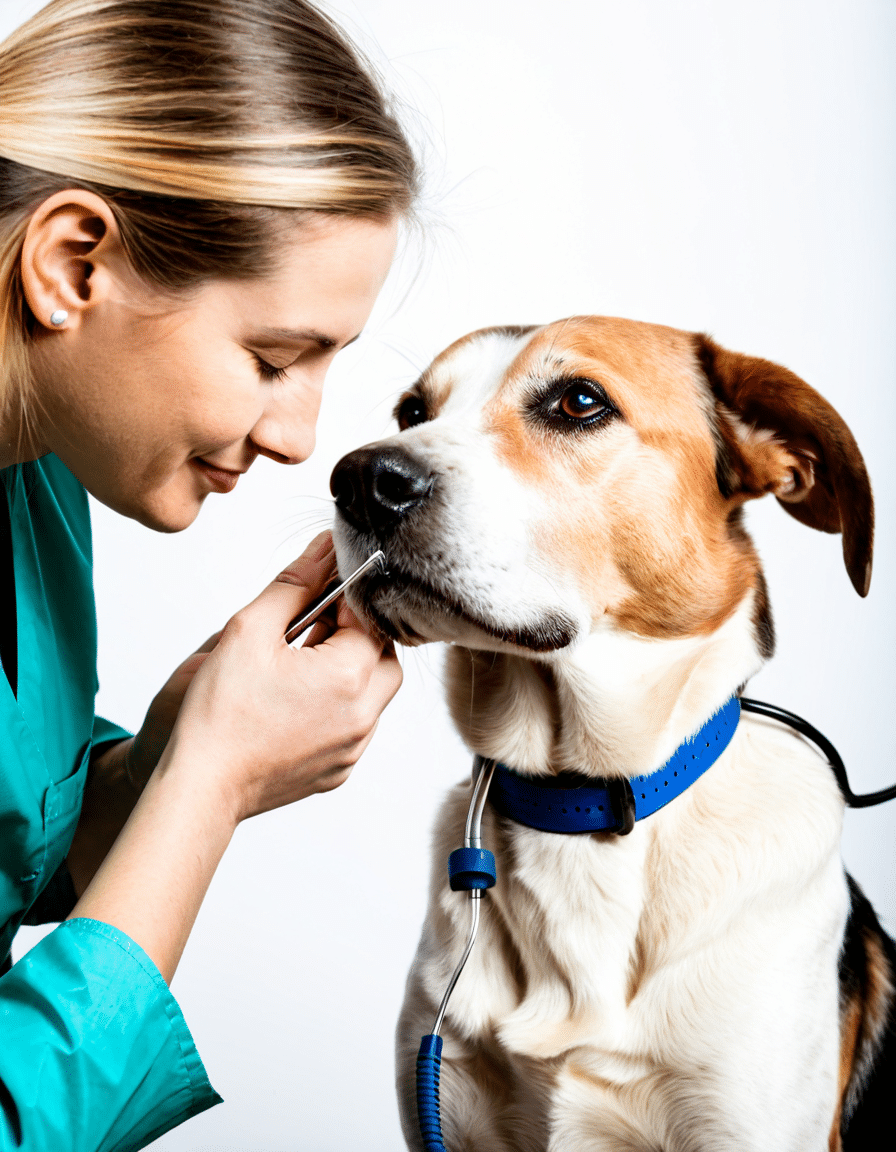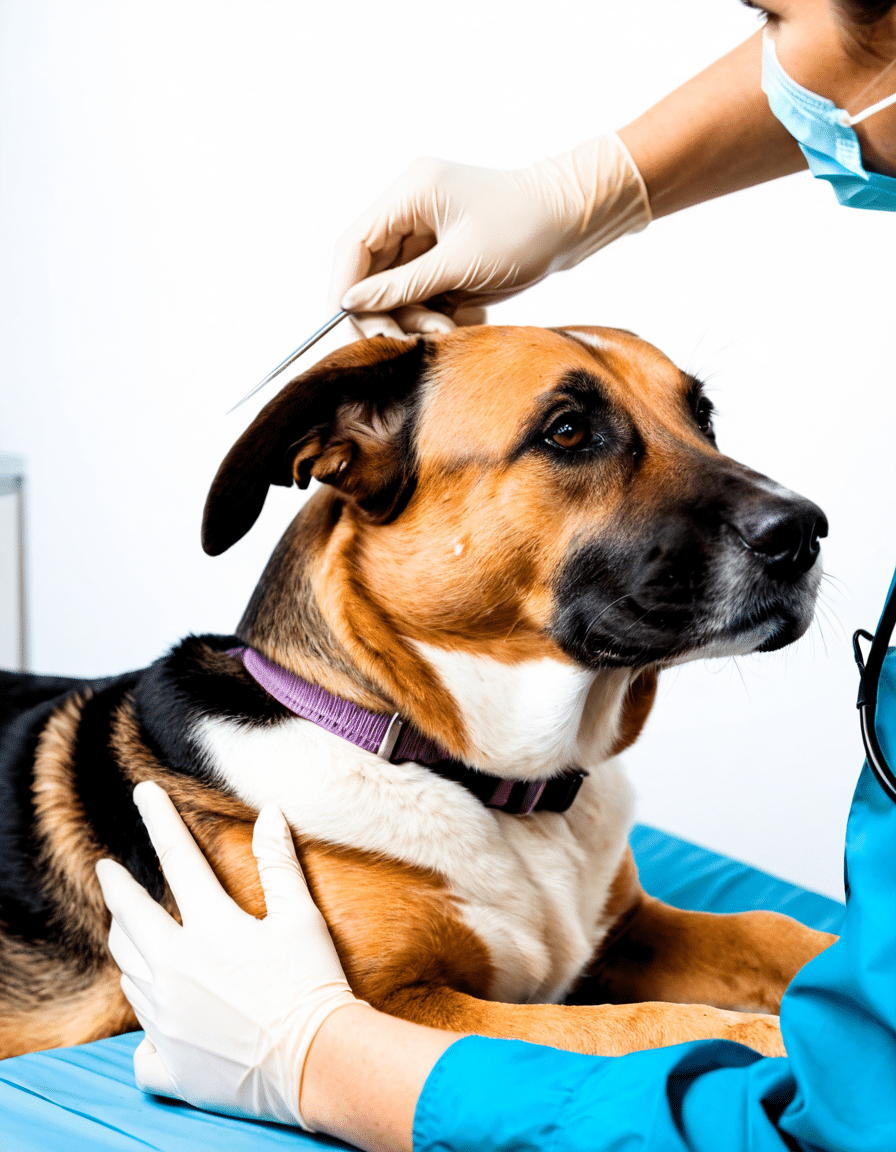Hematomas on a dog’s ear can be painful and worrying for any pet owner. If your furry friend has developed one, you might feel overwhelmed wondering about the best course of action. Don’t fret! We’re here to break down the ins and outs of treating a hematoma on a dog’s ear, from understanding what it is to managing your pup’s recovery effectively.
Understanding Hematomas in Dogs
What is a Hematoma?
A hematoma is a localized collection of blood outside of blood vessels that causes swelling and discomfort. When it occurs on a dog’s ear, it usually results from trauma or excessive scratching. It may look alarming but understanding its formation can make it less scary.
How Do They Form on a Dog’s Ear?
Hematomas generally form when blood vessels rupture inside the ear flap or pinna. This can occur from head shaking, persistent scratching due to allergies, or if your dog gets into a bit of rough and tumble play. Sometimes, even a seemingly insignificant bump can lead to one if combined with other factors.
Risk Factors Leading to Ear Hematomas
Several factors can increase the likelihood of hematomas occurring. These include:
Understanding these factors can help you take steps to prevent future issues.

5 Essential Steps for Treating a Hematoma on a Dog’s Ear
1. Identify Symptoms
It’s crucial to keep an eye on your dog for signs of a hematoma. Most often, you’ll notice:
2. Vet Consultation
If you suspect a hematoma, don’t hesitate to consult your vet. It’s important for a professional to confirm the diagnosis, as they can run tests like:
Professional diagnosis ensures you’re on the right path for treating your dog’s condition.
3. Treatment Options
When it comes to treating a hematoma on a dog’s ear, you have several options:
Your vet will discuss the best course of action based on your dog’s specific condition.
4. Post-Treatment Care
After treatment, it’s your job to help your dog during recovery. Here are some tips:
Being proactive now can make a world of difference in your dog’s recovery.
5. Preventative Measures
Prevention is always better than treatment. To minimize the risk of future hematomas:
Establishing a good routine can save you a trip to the vet down the line!
Recognizing Related Health Issues: Symptoms of a Dog with a Brain Tumor
Sometimes, ear issues can coincide with more serious health concerns. If your dog is also showing signs like lethargy, seizures, or behavioral changes, it’s crucial to consult your vet immediately. These symptoms can be indicative of a broader issue, such as symptoms of a dog with a brain tumor. Catching such conditions early can drastically improve outcomes.

Recognizing Signs a Dog is Dying of Cancer
As difficult as it is, owners should also be aware of signs a dog is dying of cancer. Symptoms to watch for include:
– Dramatic changes in behavior or routine
– Significant weight loss and decreased appetite
– Excessive lethargy or weakness
If you suspect anything’s amiss, contacting your veterinarian right away is essential. Caring for a sick pet is emotionally taxing, but knowing what to look for can help you make informed decisions during tough times.
Understanding Cardiomyopathy and Hematomas: The Case of Dogs with Atrial Fibrillation (AF) and Hypertrophic Cardiomyopathy (HCM)
It’s worth noting that existing conditions like atrial fibrillation (AF) and hypertrophic cardiomyopathy (HCM) can complicate the healing process for hematomas. These cardiac issues can lead to increased bleeding or trouble healing. Your vet can provide more context, including case studies that illustrate the correlation between heart conditions and hematomas, which may be helpful in understanding your dog’s health.
Comparative Case: Hematoma in a Cat’s Ear
Interestingly, hematomas can occur in cats as well, though the approaches to treatment may differ slightly. For example, cats are less likely to undergo surgery but may respond well to anti-inflammatory medications. Understanding the hematoma in a cat’s ear can give you insight into how to handle similar issues in dogs.
FAQs: Will a Dog with Lymphoma Die Naturally?
Unfortunately, conditions like lymphoma can lead to difficult conversations. Understanding “will a dog with lymphoma die naturally” involves recognizing the stage of the disease and the options available for care. Speaking openly with your vet can empower you to make the best choices for your four-legged friend.
Final Thoughts on Care and Treatment
Timely intervention is critical for maintaining your dog’s ear health and overall well-being. Establishing a solid relationship with your veterinarian can go a long way in effectively managing your pet’s health. Take the time to educate yourself on pet care — you’ll be better equipped to recognize and treat conditions early for improved outcomes.
Don’t let your dog suffer in silence; addressing issues promptly not only improves your pup’s quality of life but also gives you peace of mind. Your furry companion deserves the best care, so stick together through thick and thin!
Treating a Hematoma on a Dog’s Ear Made Easy
When it comes to treating a hematoma on a dog’s ear, it’s essential to stay informed and prepared. Ahem, did you know that breeds like the boxer bulldog mix are more prone to developing ear hematomas due to their floppy ears? The way their ears flop can make them more susceptible to injuries that lead to swelling. It’s surprising how many pet owners aren’t aware of this! Additionally, understanding how to recognize and treat this issue can prevent more extensive problems down the line.
If you’re faced with treating a hematoma on a dog’s ear, remember that the skin can be delicate. For instance, a short-haired golden retriever might experience less irritation on the ears, but that doesn’t mean they’re immune. Always watch for signs like swelling or constant scratching. Those signs could point to something more serious than just an angry ear. Plus, know that incompetent doggy friends, or just a day of rough play in the Tummel Valley, could result in ear injuries needing your immediate attention.
Speaking of attention, did you know ear hematomas can sometimes heal without surgery? However, if they persist, surgical drainage may be necessary. It’s like the age-old debate of pitbull vs. bulldog – both have their own charm and quirks, but one might require more meticulous care than the other. So, if you find yourself unsure, don’t hesitate to consult your vet; after all, your pup’s health is worth it! Knowing how to manage this condition can help you get your furry friend back to their playful self in no time, just like how Cubbi Thompson manages to brighten everyone’s day, one story at a time.






